Toyota Mirai VS Lexus LBX – Specs, Efficiency & Price Comparison
Which model is the better choice – the Toyota Mirai or the Lexus LBX? We compare performance (182 HP vs 136 HP), boot capacity (300 L vs 332 L), efficiency ( vs 4.50 L), and of course, the price (58700 £ vs 28300 £).
Find out now which car fits your needs better!
The Toyota Mirai (Sedan) is powered by a Hydrogen engine and comes with a Automatic transmission. In comparison, the Lexus LBX (SUV) features a Full Hybrid engine and a Automatic gearbox.
When it comes to boot capacity, the Toyota Mirai offers 300 L, while the Lexus LBX provides 332 L – depending on what matters most to you. If you’re looking for more power, you’ll need to decide whether the 182 HP of the Toyota Mirai or the 136 HP of the Lexus LBX suits your needs better.
There are also differences in efficiency: vs 4.50 L. In terms of price, the Toyota Mirai starts at 58700 £, while the Lexus LBX is available from 28300 £.
Compare all the key specs now and find out which model fits your lifestyle best!
Toyota Mirai
The Toyota Mirai represents a groundbreaking step in hydrogen fuel cell technology, offering an eco-friendly alternative to traditional petrol engines. Its sleek design and futuristic aesthetic make it a standout on the road, while the interior combines comfort with cutting-edge features. With its impressive range and quick refuelling capabilities, the Mirai is paving the way for the future of sustainable motoring.
details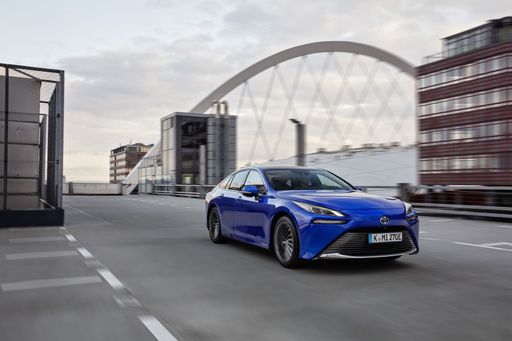 @ Toyota
@ Toyota
Lexus LBX
The Lexus LBX represents a new era of compact luxury crossovers, blending a sleek design with exceptional craftsmanship. This model offers an impressive balance of performance and comfort, making it an appealing option for urban driving and longer journeys alike. Inside, the cabin features high-quality materials and innovative technology, ensuring a driving experience that is both sophisticated and connected.
details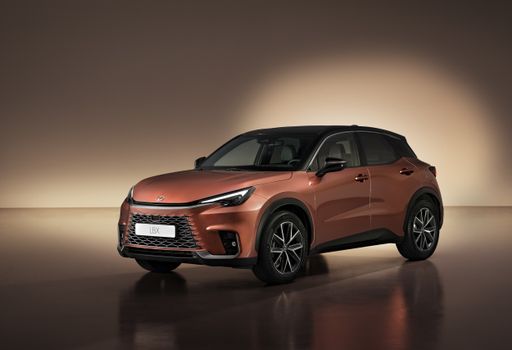 @ newsroom.lexus.eu
@ newsroom.lexus.eu
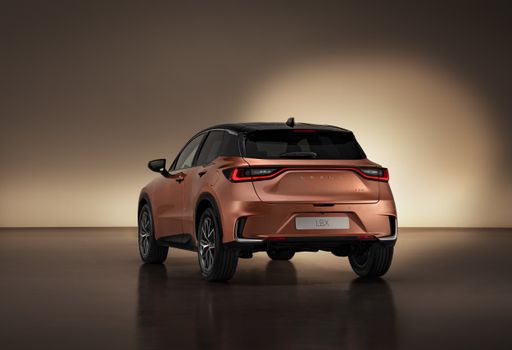 @ newsroom.lexus.eu
@ newsroom.lexus.eu
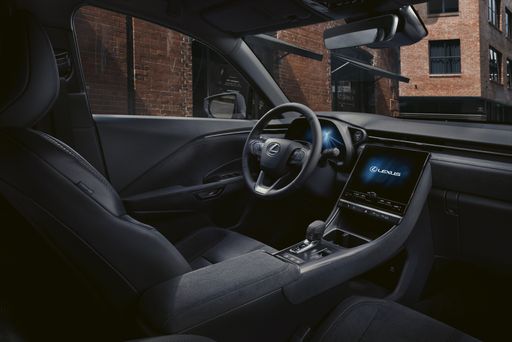 @ newsroom.lexus.eu
@ newsroom.lexus.eu
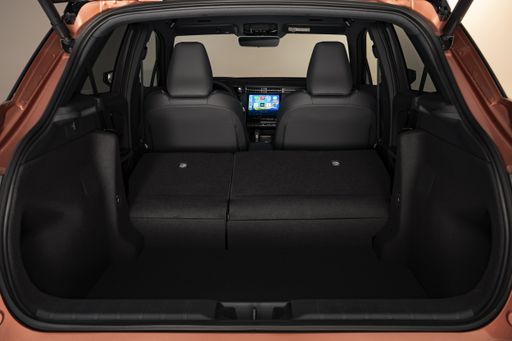 @ newsroom.lexus.eu
@ newsroom.lexus.eu

|

|
|
|
|
Costs and Consumption |
|
|---|---|
|
Price
58700 - 66700 £
|
Price
28300 - 39600 £
|
|
Consumption L/100km
-
|
Consumption L/100km
4.5 - 4.8 L
|
|
Consumption kWh/100km
-
|
Consumption kWh/100km
-
|
|
Electric Range
650 km
|
Electric Range
-
|
|
Battery Capacity
-
|
Battery Capacity
-
|
|
co2
-
|
co2
102 - 109 g/km
|
|
Fuel tank capacity
5 L
|
Fuel tank capacity
36 L
|
Dimensions and Body |
|
|---|---|
|
Body Type
Sedan
|
Body Type
SUV
|
|
Seats
5
|
Seats
4
|
|
Doors
4
|
Doors
5
|
|
Curb weight
1900 - 1930 kg
|
Curb weight
1280 - 1365 kg
|
|
Trunk capacity
300 L
|
Trunk capacity
255 - 332 L
|
|
Length
4975 mm
|
Length
4190 mm
|
|
Width
1885 mm
|
Width
1825 mm
|
|
Height
1470 mm
|
Height
1560 mm
|
|
Payload
485 - 515 kg
|
Payload
455 - 475 kg
|
Engine and Performance |
|
|---|---|
|
Engine Type
Hydrogen
|
Engine Type
Full Hybrid
|
|
Transmission
Automatic
|
Transmission
Automatic
|
|
Transmission Detail
-
|
Transmission Detail
CVT
|
|
Drive Type
Rear-Wheel Drive
|
Drive Type
Front-Wheel Drive, All-Wheel Drive
|
|
Power HP
182 HP
|
Power HP
136 HP
|
|
Acceleration 0-100km/h
9.20 s
|
Acceleration 0-100km/h
9.2 - 9.6 s
|
|
Max Speed
175 km/h
|
Max Speed
170 km/h
|
|
Torque
300 Nm
|
Torque
185 Nm
|
|
Number of Cylinders
-
|
Number of Cylinders
3
|
|
Power kW
134 kW
|
Power kW
100 kW
|
|
Engine capacity
-
|
Engine capacity
1490 cm3
|
General |
|
|---|---|
|
Model Year
2021 - 2022
|
Model Year
2024
|
|
CO2 Efficiency Class
-
|
CO2 Efficiency Class
C
|
|
Brand
Toyota
|
Brand
Lexus
|
Toyota Mirai
The Future of Driving: Introducing the Toyota Mirai
The Toyota Mirai represents a significant leap forward in automotive innovation, being one of the leading vehicles in the hydrogen fuel cell market. As we continue to search for sustainable transportation solutions, the Mirai stands out with its pioneering technology and exceptional driving features.
Revolutionary Hydrogen Fuel Cell Technology
At the heart of the Toyota Mirai is its groundbreaking hydrogen fuel cell system. Unlike conventional internal combustion engines, the Mirai uses a fuel cell stack to generate electricity through the chemical reaction between hydrogen and oxygen. This process not only powers the car with zero emissions—producing only water vapour as a byproduct—but also delivers a smooth and silent drive.
Technical Specifications and Performance
The Toyota Mirai is designed with performance in mind. It boasts a power output of 182 PS (134 kW) and delivers a robust 300 Nm of torque, allowing it to accelerate from 0 to 100 km/h in just 9.2 seconds. While its top speed is a respectable 175 km/h, it's the Mirai's impressive range that really stands out. The vehicle can travel up to 650 km on a single hydrogen fill-up, making it a practical choice for long-distance travel.
Sophisticated Design and Comfort
Designed as a saloon, the Toyota Mirai combines aesthetic appeal with comfort. Its dimensions—4975 mm in length, 1885 mm in width, and 1470 mm in height—provide a spacious interior for five passengers. The design is sleek and modern, reflecting its advanced engineering. The boot offers 300 litres of storage, suitable for everyday needs.
Advanced Features and Safety
The Toyota Mirai doesn't just excel in propulsion technology; it also includes a range of advanced features to enhance driver comfort and safety. Available in three trims—Advanced, Executive, and Luxury—the Mirai includes state-of-the-art safety systems and infotainment options to ensure a connected and secure driving experience.
Cost and Efficiency
While the price of the Toyota Mirai ranges from €65,990 to €76,290, its monthly running costs—estimated between €1,496 and €1,672—and per kilometre costs of 59.9 to 66.9 cents, reflect the efficient nature of hydrogen-powered vehicles. Considering its innovative technology, the Toyota Mirai offers excellent value for those looking to invest in the future of eco-friendly transport.
The Toyota Mirai: Driving Towards a Sustainable Future
Overall, the Toyota Mirai is more than just a car; it's a vision for the future of sustainable transportation. With its cutting-edge hydrogen fuel cell technology, impressive range, and commitment to zero-emissions driving, the Mirai sets a new standard in environmentally conscious car design. Whether you're an eco-enthusiast or just someone seeking a reliable and technological advanced vehicle, the Toyota Mirai is worth considering.
Lexus LBX
Introducing the Lexus LBX: A New Age of Compact SUVs
The highly anticipated Lexus LBX has revolutionised the compact SUV market, delivering a perfect blend of luxury, efficiency, and performance. With a strong emphasis on hybrid technology, this new model sets a high standard for the environmentally conscious motorist while not compromising on style or innovation.
Under the Bonnet: Technical Mastery
The Lexus LBX is powered by an advanced full-hybrid drivetrain, with a capable engine that deftly combines efficiency and power. Its 1.5-litre, 3-cylinder engine is paired with a CVT automatic gearbox, producing a commendable 136 PS and 100 kW of power. This setup ensures smooth transitions and a seamless driving experience.
The choice between front-wheel and all-wheel drive ensures that drivers can tailor the LBX to their specific needs. The front-wheel drive variant boasts an impressive consumption rate of 4.5 L/100km, while the all-wheel drive models achieve 4.8 L/100km. With CO2 emissions ranging from 102 to 109 g/km, the LBX stands out as a sustainable choice in its class.
Performance and Efficiency
The Lexus LBX doesn’t just excel in fuel efficiency. Its performance statistics are noteworthy, with an acceleration of 0-100 km/h in just 9.2 to 9.6 seconds, and a top speed of 170 km/h. The hybrid system provides a combined torque of 185 Nm, delivering an energetic drive without compromising on environmental considerations.
Despite its compact design, the Lexus LBX offers a substantial boot space of 255 to 332 litres, making it ideal for everyday use and weekend escapades. The SUV's dimensions—measuring 4190 mm in length, 1825 mm in width, and 1560 mm in height—ensure it is suitably compact for urban driving while providing ample interior space.
Innovation in Design
Lexus pushes the boundaries of SUV design with the LBX by offering a modern and elegant aesthetic alongside its technical features. The model is available in several trim levels, including e-CVT, Elegant e-CVT, and the more dynamic Emotion E-FOUR e-CVT, each designed to cater to different tastes and preferences.
Interior features focus on comfort and connectivity, providing a plush environment with advanced infotainment options that seamlessly integrate with daily life. The LBX seats four comfortably, making use of high-quality materials that reflect the premium nature of the brand.
Price and Value Offering
The Lexus LBX comes with an accessible price range of €32,990 to €46,190, offering a luxurious entry into the world of hybrid SUVs. Considering its monthly operational costs ranging from €920 to €1,088, the LBX offers economical running alongside its ecological advantages, making it a smart choice for the discerning driver.
In conclusion, the Lexus LBX captures the essence of what a modern compact SUV should offer: performance, efficiency, and luxury all wrapped in a package that respects the environment. It is a noteworthy addition to the Lexus family, sure to capture the hearts of drivers everywhere.
The prices and data displayed are estimates based on German list prices and may vary by country. This information is not legally binding.
